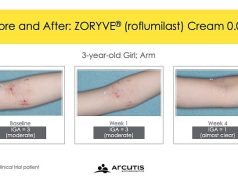Direct oral anticoagulants suggested over standard of care anticoagulants for pediatric patients with venous thromboembolism
By Elana Gotkine HealthDay Reporter
FRIDAY, May 30, 2025 (HealthDay News) — In clinical guidelines issued by the American Society of Hematology and the International Society on Thrombosis and Haemostasis, and published online May 27 in Blood Advances, new and updated recommendations are presented for the treatment of pediatric venous thromboembolism (VTE).
Paul Monagle, M.D., M.B.B.S., from the University of Melbourne in Australia, and colleagues developed evidence-based guidelines to support patients, clinicians, and other health care professionals in decisions regarding management of pediatric patients with VTE.
The authors updated 16 recommendations and added four new recommendations. These include suggested use of anticoagulation rather than no anticoagulation for pediatric patients with symptomatic deep vein thrombosis (DVT) or pulmonary embolism (PE) (conditional recommendation). Use of anticoagulation or no anticoagulation is suggested for pediatric patients with clinically unsuspected (asymptomatic) DVT or PE (conditional recommendation). Six weeks of anticoagulation is suggested rather than three months for select pediatric patients with provoked VTE (conditional recommendation). Anticoagulation is suggested for six to 12 months rather than indefinitely for pediatric patients with unprovoked DVT or PE (conditional recommendation). Direct oral anticoagulants (rivaroxaban/dabigatran) are suggested over standard of care anticoagulants (low molecular weight heparin, unfractionated heparin, vitamin K antagonist, or fondaparinux) for pediatric patients with VTE (conditional recommendation). Use of either rivaroxaban or dabigatran is suggested for pediatric patients with VTE, with individual populations or jurisdictional availability leading clinicians to choose one over the other.
“The care of children is important, and parents should know that there is a body of evidence that supports their child’s treatment options,” Monagle said in a statement.
Several authors disclosed ties to the biopharmaceutical industry.
Copyright © 2025 HealthDay. All rights reserved.








